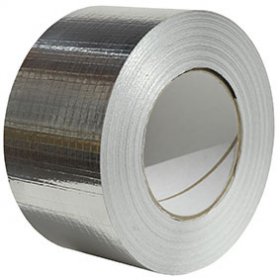Day 6: Guard Gallivant
Megathread guidelines
- Keep top level comments as only solutions, if you want to say something other than a solution put it in a new post. (replies to comments can be whatever)
- You can send code in code blocks by using three backticks, the code, and then three backticks or use something such as https://topaz.github.io/paste/ if you prefer sending it through a URL
FAQ
- What is this?: Here is a post with a large amount of details: https://programming.dev/post/6637268
- Where do I participate?: https://adventofcode.com/
- Is there a leaderboard for the community?: We have a programming.dev leaderboard with the info on how to join in this post: https://programming.dev/post/6631465
Haskell
This was a fun one! Infinite loops, performance concerns and so on. Part 2 could be made a bit faster with a recursive approach (I think), but this is good enough for me. Lost quite a bit of time with an incorrect
walkfunction that passed the test data and part 1 but not part 2.import Data.Array.Unboxed (UArray) import Data.Array.Unboxed qualified as Array import Data.List import Data.Maybe import Data.Set (Set) import Data.Set qualified as Set readInput :: String -> UArray (Int, Int) Char readInput s = let rows = lines s in Array.listArray ((1, 1), (length rows, length $ head rows)) $ concat rows startPos = fst . fromJust . find ((== '^') . snd) . Array.assocs walk grid = go (startPos grid) (-1, 0) where go pos@(i, j) dir@(di, dj) = (pos, dir) : let pos' = (i + di, j + dj) in if Array.inRange (Array.bounds grid) pos' then case grid Array.! pos' of '#' -> go pos (dj, -di) _ -> go pos' dir else [] path = Set.fromList . map fst . walk part1 = Set.size . path part2 grid = Set.size $ Set.filter (isLoop . walk . addO) $ Set.delete (startPos grid) $ path grid where addO pos = grid Array.// [(pos, '#')] isLoop xs = or $ zipWith Set.member xs $ scanl' (flip Set.insert) Set.empty xs main = do input <- readInput <$> readFile "input06" print $ part1 input print $ part2 inputC#
public class Day06 : Solver { private readonly (int, int)[] directions = [ (0, -1), (1, 0), (0, 1), (-1, 0) ]; private ImmutableArray<string> data; private int width, height; private ImmutableHashSet<(int, int)> guard_path; private int start_x, start_y; public void Presolve(string input) { data = input.Trim().Split("\n").ToImmutableArray(); width = data[0].Length; height = data.Length; for (int i = 0; i < width; i++) { for (int j = 0; j < height; j++) { if (data[j][i] == '^') { start_x = i; start_y = j; break; } } } guard_path = Walk().Path.ToImmutableHashSet(); } private bool IsWithinBounds(int x, int y) => x >= 0 && y >= 0 && x < width && y < height; private (HashSet<(int, int)> Path, bool IsLoop) Walk((int, int)? obstacle = null) { int obstacle_x = obstacle?.Item1 ?? -1; int obstacle_y = obstacle?.Item2 ?? -1; int direction = 0; int x = start_x; int y = start_y; bool loop = false; HashSet<(int, int, int)> positions = new(); while (IsWithinBounds(x, y)) { if (positions.Contains((x, y, direction))) { loop = true; break; } positions.Add((x, y, direction)); int nx = x + directions[direction].Item1; int ny = y + directions[direction].Item2; while (IsWithinBounds(nx, ny) && (data[ny][nx] == '#' || (nx == obstacle_x && ny == obstacle_y))) { direction = (direction + 1) % 4; nx = x + directions[direction].Item1; ny = y + directions[direction].Item2; } x = nx; y = ny; } return (positions.Select(position => (position.Item1, position.Item2)).ToHashSet(), loop); } public string SolveFirst() => guard_path.Count.ToString(); public string SolveSecond() => guard_path .Where(position => position != (start_x, start_y)) .Where(position => Walk(position).IsLoop) .Count().ToString(); }Lisp
Brute forced part 2, but got a lot of reuse from part 1.
Part 1 and 2
(defvar *part1* "inputs/day06-part1") (defvar *part1-test* "inputs/day06-part1-test") (defstruct move x y direction) (defstruct guard direction x y (moves (make-hash-table :test 'equalp))) (defun convert-direction (g) (case g (^ 'up) (> 'right) (< 'left) (v 'down))) (defun find-guard (map) (destructuring-bind (rows cols) (array-dimensions map) (loop for j from 0 below rows do (loop for i from 0 below cols for v = (aref map j i) when (not (or (eql '|.| v) (eql '|#| v))) do (return-from find-guard (make-guard :direction (convert-direction v) :x i :y j )))))) (defun turn-guard (guard) (case (guard-direction guard) (UP (setf (guard-direction guard) 'RIGHT)) (DOWN (setf (guard-direction guard) 'LEFT)) (LEFT (setf (guard-direction guard) 'UP)) (RIGHT (setf (guard-direction guard) 'DOWN)))) (defun on-map (map x y) (destructuring-bind (rows cols) (array-dimensions map) (and (>= x 0) (>= y 0) (< y rows) (< x cols)))) (defun mark-guard (map guard) (setf (aref map (guard-y guard) (guard-x guard)) 'X)) (defun next-pos (guard) (case (guard-direction guard) (UP (list (guard-x guard) (1- (guard-y guard)))) (DOWN (list (guard-x guard) (1+ (guard-y guard)))) (LEFT (list (1- (guard-x guard)) (guard-y guard))) (RIGHT (list (1+ (guard-x guard)) (guard-y guard))))) (defun move-guard (map guard) (destructuring-bind (x y) (next-pos guard) (if (on-map map x y) (if (eql '|#| (aref map y x)) (turn-guard guard) (progn (setf (guard-x guard) x) (setf (guard-y guard) y))) (setf (guard-direction guard) nil)))) (defun run-p1 (file) (let* ((map (list-to-2d-array (read-file file #'to-symbols))) (guard (find-guard map))) (mark-guard map guard) (loop while (guard-direction guard) do (mark-guard map guard) do (move-guard map guard)) (destructuring-bind (rows cols) (array-dimensions map) (loop for y from 0 below rows sum (loop for x from 0 below cols count (eql (aref map y x) 'X)))))) (defun save-move (guard move) (setf (gethash move (guard-moves guard)) t)) (defun reset-moves (guard) (setf (guard-moves guard) nil)) (defun is-loop (x y map original-guard) ;; can only set new blocks in blank spaces (unless (eql '|.| (aref map y x)) (return-from is-loop nil)) (let ((guard (copy-guard original-guard))) ;; save the initial guard position (save-move guard (make-move :x (guard-x guard) :y (guard-y guard) :direction (guard-direction guard))) ;; set the "new" block (setf (aref map y x) '|#|) ;; loop and check for guard loops (let ((result (loop while (move-guard map guard) for move = (make-move :x (guard-x guard) :y (guard-y guard) :direction (guard-direction guard)) ;; if we have seen the move before, then it is a loop if (gethash move (guard-moves guard)) return t else do (save-move guard move) finally (return nil)))) ;; reset initial position (setf (aref map y x) '|.|) (clrhash (guard-moves guard)) result))) (defun run-p2 (file) (let* ((map (list-to-2d-array (read-file file #'to-symbols))) (guard (find-guard map))) (destructuring-bind (rows cols) (array-dimensions map) (loop for y from 0 below rows sum (loop for x from 0 below cols count (is-loop x y map guard))) )))Rust
In part 2 it took me some time to figure out that I cannot immediately move after turning, but then it worked fairly well. As a slight optimization I check only the places that were visited without obstacles (the solution from part 1). With this, part 2 takes 52ms.
Solution
use euclid::default::{Point2D, Vector2D}; use euclid::vec2; fn parse(input: String) -> (Vec<Vec<bool>>, Point2D<i32>) { let mut field = Vec::new(); let mut start = Point2D::zero(); for (y, line) in input.lines().enumerate() { let mut row = Vec::new(); for (x, c) in line.chars().enumerate() { row.push(c == '#'); if c == '^' { start = Point2D::new(x, y).to_i32(); } } field.push(row); } (field, start) } const DIRS: [Vector2D<i32>; 4] = [vec2(0, -1), vec2(1, 0), vec2(0, 1), vec2(-1, 0)]; fn visited(field: &[Vec<bool>], start: Point2D<i32>) -> Vec<Vec<bool>> { let width = field[0].len(); let height = field.len(); let mut visited = vec![vec![false; width]; height]; // Start up, then turn right let mut dir = 0; let mut pos = start; loop { visited[pos.y as usize][pos.x as usize] = true; let next = pos + DIRS[dir]; // Guard leaves area if next.x < 0 || next.y < 0 || next.x >= width as i32 || next.y >= height as i32 { break; } // Path blocked if field[next.y as usize][next.x as usize] { dir = (dir + 1) % 4; // Turn right, don't move yet } else { pos = next } } visited } fn part1(input: String) { let (field, start) = parse(input); let count = visited(&field, start) .iter() .map(|r| r.iter().map(|b| u32::from(*b)).sum::<u32>()) .sum::<u32>(); println!("{count}") } fn is_loop(field: &[Vec<bool>], start: Point2D<i32>) -> bool { let width = field[0].len(); let height = field.len(); let mut visited = vec![vec![0; width]; height]; // Start up, then turn right let mut dir = 0; let mut pos = start; loop { // Loop detected if visited[pos.y as usize][pos.x as usize] & (1 << dir) > 0 { break true; } // Record all walked directions at all fields visited[pos.y as usize][pos.x as usize] |= 1 << dir; let next = pos + DIRS[dir]; // Guard leaves area if next.x < 0 || next.y < 0 || next.x >= width as i32 || next.y >= height as i32 { break false; } // Path blocked if field[next.y as usize][next.x as usize] { dir = (dir + 1) % 4 // Turn right, don't move yet } else { pos = next } } } fn part2(input: String) { let (mut field, start) = parse(input); let width = field[0].len(); let height = field.len(); let normal_visited = visited(&field, start); // Part 1 solution let mut count = 0; for x in 0..width { for y in 0..height { // Only check places that are visited without any obstacles, and don't check start if normal_visited[y][x] && !(x as i32 == start.x && y as i32 == start.y) { field[y][x] = true; // Set obstacle count += is_loop(&field, start) as u32; field[y][x] = false; // Remove obstacle } } } println!("{count}"); } util::aoc_main!();also on github
Python
Part 1: Simulate the guard’s walk, keeping track of visited positions
Part 2: Semi brute-force. Try to place an obstacle at every valid position in the guard’s original path and see if it leads to a loop.import os from collections import defaultdict # paths here = os.path.dirname(os.path.abspath(__file__)) filepath = os.path.join(here, 'input.txt') # read input with open(filepath, mode='r', encoding='utf8') as f: data = f.read() rows = data.splitlines() # bounds m = len(rows) n = len(rows[0]) # directions following 90 degree clockwise turns # up, right, down, left DIRECTIONS = [(-1, 0), (0, 1), (1, 0), (0, -1)] # find position of guard guard_i, guard_j = -1, -1 for i in range(m): for j in range(n): if rows[i][j] == '^': guard_i, guard_j = i, j break if guard_i != -1: break def part1(guard_i, guard_j): # keep track of visited positions visited = set() visited.add((guard_i, guard_j)) dir_idx = 0 # current direction index # loop while guard is in map while True: delta_i, delta_j = DIRECTIONS[dir_idx] next_gi, next_gj = guard_i + delta_i, guard_j + delta_j # next pos # if out of bounds, we are done if not (0 <= next_gi < m) or not (0 <= next_gj < n): break # change direction when obstacle encountered if rows[next_gi][next_gj] == "#": dir_idx = (dir_idx + 1) % 4 continue # update position and visited guard_i, guard_j = next_gi, next_gj visited.add((guard_i, guard_j)) print(f"{len(visited)=}") def part2(guard_i, guard_j): # keep track of visited positions visited = set() visited.add((guard_i, guard_j)) dir_idx = 0 # current direction index loops = 0 # loops encountered # walk through the path while True: delta_i, delta_j = DIRECTIONS[dir_idx] next_gi, next_gj = guard_i + delta_i, guard_j + delta_j # next pos # if out of bounds, we are done if not (0 <= next_gi < m) or not (0 <= next_gj < n): break # change direction when obstacle encountered if rows[next_gi][next_gj] == "#": dir_idx = (dir_idx + 1) % 4 continue # if a position is not already in path, # put a obstacle there and see if guard will loop if (next_gi, next_gj) not in visited and willLoop(guard_i, guard_j, dir_idx): loops += 1 # update position and visited guard_i, guard_j = next_gi, next_gj visited.add((guard_i, guard_j)) print(f"{loops=}") # used in part 2 # returns whether placing an obstacle on next pos causes a loop or not def willLoop(guard_i, guard_j, dir_idx) -> bool: # obstacle pos obs_i, obs_j = guard_i + DIRECTIONS[dir_idx][0], guard_j + DIRECTIONS[dir_idx][1] # keep track of visited pos and the direction of travel visited: defaultdict[tuple[int, int], list[int]] = defaultdict(list) visited[(guard_i, guard_j)].append(dir_idx) # walk until guard exits map or loops while True: delta_i, delta_j = DIRECTIONS[dir_idx] next_gi, next_gj = guard_i + delta_i, guard_j + delta_j # next pos # if out of bounds, no loop if not (0 <= next_gi < m) or not (0 <= next_gj < n): return False # change direction when obstacle encountered if rows[next_gi][next_gj] == "#" or (next_gi == obs_i and next_gj == obs_j): dir_idx = (dir_idx + 1) % 4 continue # we are looping if we encounter a visited pos in a visited direction if (next_gi, next_gj) in visited and dir_idx in visited[(next_gi, next_gj)]: return True # update position and visited guard_i, guard_j = next_gi, next_gj visited[(guard_i, guard_j)].append(dir_idx) part1(guard_i, guard_j) part2(guard_i, guard_j)How long did brute force take? Mine was 9s on an m1 with rust.
My rust code ran in 6s on my phone (Samsung A35 running under Termux). When I’m back at a computer it’d be interesting to compare times properly.
About 15-20 seconds, not too bad.
I got mine down to 3s, but it wasn’t a very smart loop detection. All I did was count steps and stop after 10000. The 9 second run was 100000 steps, which is obviously a bit excessive.
Does save iterating over the list of past visits, so probably a good shortcut.
I did a similar approach (place obstacles on guards path). Takes about
80s10-15s in 11th Gen Intel® Core™ i7-11800H. Motivated by the code above, I also restricted the search to start right before the obstacle rather than the whole path which took it down from 80s to 10-15sMine was 9s
That’s about how long it takes for my python solution to complete.
How did you detect loops? I just ran for 100000 steps to see if I escaped, got my time down to 3s by doing only 10000 steps.
Not who you asked but: I save coordinates and direction into a vector each time the guard faces a #. Also every time the guard faces a #, I check if the position exists in the vector, if true, it’s an infinite loop. 78ms rust aolution.
That’s probably quite optimal, compared with checking every state in the path, or running off a fixed number of steps
I added each visited position/direction to a set, and when a ‘state’ is reached again you have entered a loop:
v = set() while t[g.r][g.c] != 'X': state = (g.r, g.c, g.d) if state in v: acc += 1 break v.add(state) g.move(t)You can view my full solution here.
Not a big fan of this one, felt far too much like brute force for my liking.
At least it works withAsParallel…C#
public struct Point : IEquatable<Point> { public int X { get; set; } public int Y { get; set; } public Point(int x = 0, int y = 0) { X = x; Y = y; } public static Point operator+(Point l, Point r) { return new Point(l.X + r.X, l.Y + r.Y); } public bool Equals(Point other) { return X == other.X && Y == other.Y; } } Point size = new Point(0, 0); HashSet<Point> obstructions = new HashSet<Point>(); Point guard = new Point(0, 0); enum Direction { Up = 0, Right, Down, Left } public void Input(IEnumerable<string> lines) { size = new Point(lines.First().Length, lines.Count()); char[] map = string.Join("", lines).ToCharArray(); for (int y = 0; y < size.Y; ++y) for (int x = 0; x < size.X; ++x) { int pos = y * size.X + x; char at = map[pos]; if (at == '#') obstructions.Add(new Point(x, y)); else if (at == '^') guard = new Point(x, y); } } List<Point> path = new List<Point>(); public void PreCalc() { path = WalkArea().path.Distinct().ToList(); } public void Part1() { Console.WriteLine($"Visited {path.Count} points"); } public void Part2() { int loopPoints = path.AsParallel().Where(p => !p.Equals(guard) && WalkArea(p).loop).Count(); Console.WriteLine($"Valid loop points: {loopPoints}"); } (IEnumerable<Point> path, bool loop) WalkArea(Point? obstruction = null) { HashSet<(Point, Direction)> loopDetect = new HashSet<(Point, Direction)>(); Point at = guard; Direction dir = Direction.Up; while (true) { if (!loopDetect.Add((at, dir))) return (loopDetect.Select(p => p.Item1), true); Point next = at; switch(dir) { case Direction.Up: next += new Point(0, -1); break; case Direction.Right: next += new Point(1, 0); break; case Direction.Down: next += new Point(0, 1); break; case Direction.Left: next += new Point(-1, 0); break; } if (next.X < 0 || next.Y < 0 || next.X >= size.X || next.Y >= size.Y) break; else if (obstructions.Contains(next) || (obstruction?.Equals(next) ?? false)) dir = (Direction)(((int)dir + 1) % 4); else at = next; } return (loopDetect.Select(p => p.Item1), false); }Haskell
This one was fun, I think I wrote my first lazy infinite loop I cancel out at runtime, lost some time because I had misread the requirements on turning right.
Runs in 45 seconds on my Laptop in power-saver mode, which isn’t very fast I fear.
import Control.Arrow hiding (first, second) import Data.Map (Map) import Data.Set (Set) import Data.Bifunctor import qualified Data.Array.Unboxed as Array import qualified Data.List as List import qualified Data.Set as Set import Data.Array.Unboxed (UArray) parse :: String -> (UArray (Int, Int) Char, (Int, Int)) parse s = (a, p) where p = Array.indices >>> filter ((a Array.!) >>> (== '^')) >>> head $ a a = Array.listArray ((1, 1), (n, m)) . filter (/= '\n') $ s l = lines s (n, m) = (length . head &&& pred . length) l rotate90 d@(-1, 0) = (0, 1) rotate90 d@(0, 1) = (1, 0) rotate90 d@(1, 0) = (0, -1) rotate90 d@(0, -1) = (-1, 0) walkGuard :: (UArray (Int, Int) Char) -> (Int, Int) -> (Int, Int) -> [((Int, Int), (Int, Int))] walkGuard a p d@(dy, dx) | not isInBounds = [] | (maybe ' ' id tileAhead) == '#' = (p, d) : walkGuard a p rotatedDirection | otherwise = (p, d) : walkGuard a updatedPosition d where isInBounds = Array.inRange (Array.bounds a) p updatedPosition = bimap (+dy) (+dx) p tileAhead = a Array.!? updatedPosition rotatedDirection = rotate90 d ruleGroup :: Eq a => (a, b) -> (a, b') -> Bool ruleGroup = curry (uncurry (==) <<< fst *** fst) arrayDisplay a = Array.indices >>> List.groupBy ruleGroup >>> map (map (a Array.!)) >>> unlines $ a walkedPositions a p d = walkGuard a p >>> map fst >>> Set.fromList $ d isLoop = isLoop' Set.empty isLoop' _ [] = False isLoop' s (l:ls) | l `Set.member` s = True | otherwise = isLoop' (Set.insert l s) ls part1 (a, p) = walkedPositions a p >>> length $ (-1, 0) part2 (a, p) = walkedPositions a p >>> Set.toList >>> map (, '#') >>> map (:[]) >>> map (a Array.//) >>> map (\ a' -> walkGuard a' p (-1, 0)) >>> filter (isLoop) >>> length $ (-1, 0) main = getContents >>= print . (part1 &&& part2) . parseRust
Only part 1 because I’m meant to be leaving for a holiday in a few hours and haven’t packed yet. Part two looks simple enough to add:part 2 plan
Change seen positions set to include direction, if pos+dir already seen then it’s a loop. Test all spaces.
Edit: I did the change on my phone (which was painful).
use std::{collections::HashSet, fs, str::FromStr}; use color_eyre::eyre::{Report, Result}; type GridPosition = usize; #[derive(Debug, Clone, Copy, PartialEq, Eq, Hash)] enum Direction { N, E, S, W, } impl Direction { fn clockwise(&self) -> Self { match self { Direction::N => Direction::E, Direction::E => Direction::S, Direction::S => Direction::W, Direction::W => Direction::N, } } } #[derive(Debug, Clone, Copy, PartialEq, Eq)] enum Thing { Guard(Direction), Obstruction, Space, } #[derive(Debug, PartialEq, Eq)] struct LabMap { grid: Vec<Thing>, width: usize, height: usize, } impl FromStr for LabMap { type Err = Report; fn from_str(s: &str) -> Result<Self, Self::Err> { let grid = s .chars() .filter_map(|ch| { use Thing::*; match ch { '^' => Some(Guard(Direction::N)), '>' => Some(Guard(Direction::E)), 'v' => Some(Guard(Direction::S)), '<' => Some(Guard(Direction::W)), '#' => Some(Obstruction), '.' => Some(Space), '\n' => None, _ => unreachable!(), } }) .collect::<Vec<_>>(); let width = s .chars() .position(|ch| ch == '\n') .ok_or_else(|| Report::msg("grid width cannot be zero, or one line"))?; let height = grid.len() / width; Ok(Self { grid, width, height, }) } } impl LabMap { fn neighbour(&self, i: GridPosition, dir: Direction) -> Option<GridPosition> { let width = self.width; let length = self.grid.len(); use Direction::*; match dir { N if i >= width => Some(i - width), E if i % width != width - 1 => Some(i + 1), S if i + width < length => Some(i + width), W if i % width != 0 => Some(i - 1), _ => None, } } fn guard_pos(&self) -> Option<(GridPosition, Direction)> { self.grid .iter() .enumerate() .filter_map(|(pos, &thing)| match thing { Thing::Guard(dir) => Some((pos, dir)), _ => None, }) .next() } fn path_len(&self) -> usize { let mut positions = HashSet::new(); let mut next = self.guard_pos(); while let Some((pos, dir)) = next { positions.insert(pos); next = self.neighbour(pos, dir).map(|npos| match self.grid[npos] { Thing::Space | Thing::Guard(_) => (npos, dir), Thing::Obstruction => (pos, dir.clockwise()), }); } positions.len() } fn num_loops(&self) -> usize { (0..self.grid.len()) .filter(|&pos| matches!(self.grid[pos], Thing::Space)) .map(|pos| { let mut grid = self.grid.clone(); grid[pos] = Thing::Obstruction; LabMap { grid, width: self.width, height: self.height, } }) .filter(LabMap::is_loop) .count() } fn is_loop(&self) -> bool { let mut positions = HashSet::new(); let mut next = self.guard_pos(); while let Some((pos, dir)) = next { let is_new = positions.insert((pos, dir)); if !is_new { return true; } next = self.neighbour(pos, dir).map(|npos| match self.grid[npos] { Thing::Space | Thing::Guard(_) => (npos, dir), Thing::Obstruction => (pos, dir.clockwise()), }); } false } } fn part1(filepath: &str) -> Result<usize> { let input = fs::read_to_string(filepath)?; let map = LabMap::from_str(&input)?; Ok(map.path_len()) } fn part2(filepath: &str) -> Result<usize> { let input = fs::read_to_string(filepath)?; let map = LabMap::from_str(&input)?; Ok(map.num_loops()) } fn main() -> Result<()> { color_eyre::install()?; println!("Part 1: {}", part1("input.txt")?); println!("Part 2: {}", part2("input.txt")?); Ok(()) }TypeScript
The code
import fs from "fs"; enum GuardDirection { UP = "^", RIGHT = ">", DOWN = "v", LEFT = "<", }; const originalGrid: string[][] = fs.readFileSync("./06/input.txt", "utf-8") .split(/[\r\n]+/) .filter(Boolean) .map(row => row.split("")) .map(row => row.map(char => char === "." ? "" : char)); const gridWidth = originalGrid[0].length; const startingPosition = getStartPosition(originalGrid); const startingDirection = originalGrid[startingPosition.y][startingPosition.x] as GuardDirection; originalGrid[startingPosition.y][startingPosition.x] = ""; // Part 1 const grid = getGridCopy(originalGrid); doGuardMovement(grid); console.info("Part 1: " + grid.flatMap(row => row).filter(cell => cell.startsWith("X")).length); // Part 2 let part2Result = 0; for (let y = 0; y < originalGrid.length; y++) { for (let x = 0; x < originalGrid.length; x++) { if (!originalGrid[y][x].length && grid[y][x].startsWith("X")) { // Cell is empty AND was visited during part 1 => Should place an obstacle here const gridCopy = getGridCopy(originalGrid); gridCopy[y][x] = "#"; if (!doGuardMovement(gridCopy)) { part2Result++; } } } } console.info("Part 2: " + part2Result); function doGuardMovement(grid: string[][]): boolean { // Returns false if loop detected let [x, y, guard] = [startingPosition.x, startingPosition.y, startingDirection]; while (y >= 0 && y < grid.length && x >= 0 && x < gridWidth) { // Check for loop if (grid[y][x].length > 3) { return false; } grid[y][x] += "X"; // Mark each visitation with X // If there is something directly in front of you, turn right 90 degrees if (guard === GuardDirection.UP && y > 0 && grid[y - 1][x] === "#") { guard = GuardDirection.RIGHT; } else if (guard === GuardDirection.RIGHT && x < gridWidth - 1 && grid[y][x + 1] === "#") { guard = GuardDirection.DOWN; } else if (guard === GuardDirection.DOWN && y < grid.length - 1 && grid[y + 1][x] === "#") { guard = GuardDirection.LEFT; } else if (guard === GuardDirection.LEFT && x > 0 && grid[y][x - 1] === "#") { guard = GuardDirection.UP; } // Otherwise, take a step forward else if (guard === GuardDirection.UP) { y--; } else if (guard === GuardDirection.RIGHT) { x++; } else if (guard === GuardDirection.DOWN) { y++; } else if (guard === GuardDirection.LEFT) { x--; } else { throw new Error("Something went wrong"); } } return true; // Exited the grid } function getGridCopy(grid: string[][]): string[][] { return grid.map(row => [...row]); } function getStartPosition(grid: string[][]): {x: number, y: number} { for (let y = 0; y < grid.length; y++) { for (let x = 0; x < grid.length; x++) { if (Object.values(GuardDirection).some(char => grid[y][x] === char)) { return {x, y}; } } } throw new Error("Could not find starting position"); }Rust
This one was the first real think for this year, but I ended up brute forcing it, placing a ‘#’ in every position and checking. part 2 runs in about
380ms78ms (after reducing the amount ‘#’-placements to only where the guard walks) on my 2011 core i-7, so I’m happy, even though it feels like I could have been smarter.I am doing the same principle brute force but it takes ~7 seconds oO
Is using a
HashSet<(Pos, Dir)>for the loop detection so expensive? My CPU shouldn’t be THAT bad…Part one around 7ms.
Also curious that i have not seen someone mention a more efficient approach, there gotta be one?
I draw
^>v<characters on the grid while walking, so then it’s a direct array lookup (instead of a hashtable). The representation could be better though, some kind of bitmask would beat checking against a bunch of characters.I dont change the map, i just record the steps in the hashtable. But maybe drawing on the map is indeed shaving some time off, thanks for the input :)
It probably won’t matter a whole deal but array indexing involves no comparisons or searches. And I found it convenient too!
I’d like to see your solution in total. I’m not too familiar with the nuts and bolts, but hash set is quite a bit more expensive than a simple vector, there’s a bunch of overhead incurred when executing the hashing and placing of the data, and when repeating a few thousand times it sure adds up. My part one hovers around 600 microseconds.
I’d like to see your solution in total.
I set it up a bit like a game, https://pastebin.com/FGA6E7fA
My part one hovers around 600 microseconds.
Ohhh, that says my part 1 is slow already, i was sure my approach for 2 was the problem. Good to know!
I created rows and cols vecs that keep places of blocks. When moving, I binary search the row or col, find the block that stops me. So moving whole sections at once. Otherwise used HashSet of pos and dir like you. Also in part 2, place the new block only on the path I take in part1. Part 2 is 26ms.
The binary search sounds smart, would reduce the pathing quite a bit i guess :)
Part 2 i approached quite the same i think, was only a couple lines of code additionally. But running 5ms 5000 times is also gonna take a while…
Alright, I completely forgot about
--releasebecause i normally use just to run my stuff. That brings part 2 down to around 400ms, i am okay with that for now :D
Dart
Oof, simple rules can really trip you up if you don’t pay attention.
This takes seconds to run so it’s clearly not the right approach, but it get the right answers, so…(edit) There’s an interesting range of times from others as well, so it probably only requires a little more attention to get the time down, but maybe not today…
Click to reveal 60 lines of solution.
import 'dart:math'; import 'dart:math'; import 'package:more/more.dart'; var d4 = [Point(0, -1), Point(1, 0), Point(0, 1), Point(-1, 0)]; String safeGet(Point<int> p, List<List<String>> grid) => (p.y.between(0, grid.length - 1) && p.x.between(0, grid.first.length - 1)) ? grid[p.y][p.x] : '!'; Point<int> findGuard(List<List<String>> grid) { for (var row in grid.indices()) { for (var col in grid.first.indices()) { if (grid[row][col] == '^') return Point(col, row); } } return Point(-1, -1); //! } Set<Point<int>> getTrack(Point<int> guard, List<List<String>> grid) => checkPath(guard, grid).first.map((e) => e.first).toSet(); // Check the path, returning ({(point, dir)}, did it end in a loop). (Set<(Point<int>, int)>, bool) checkPath( Point<int> guard0, List<List<String>> grid, {Point<int>? block}) { if (block != null) grid[block.y][block.x] = '#'; var dir = 0; var guard = guard0; var track = <(Point<int>, int)>{}; var isLoop = false; while (safeGet(guard, grid) != '!') { if (track.contains((guard, dir))) { isLoop = true; break; } track.add((guard, dir)); var check = guard + d4[dir]; if (safeGet(check, grid) == '#') { dir = (dir + 1) % 4; } else { guard += d4[dir]; } } if (block != null) grid[block.y][block.x] = '.'; return (track, isLoop); } part1(List<String> lines) { var grid = lines.map((e) => e.split('')).toList(); return getTrack(findGuard(grid), grid).length; } part2(List<String> lines) { var grid = lines.map((e) => e.split('')).toList(); var guard = findGuard(grid); return getTrack(guard, grid) .count((e) => checkPath(guard, grid, block: e).last); }Nim
Not the prettiest code, but it runs in 3 seconds. For part 2 I just place an obstacle at every position guard visited in part 1.
solution
type Vec2 = tuple[x,y: int] Dir = enum Up, Right, Down, Left Guard = object pos: Vec2 dir: Dir proc step(guard: var Guard, map: seq[string]): bool = let (x, y) = guard.pos case guard.dir of Up: if y == 0: return false if map[y-1][x] != '#': dec guard.pos.y else: guard.dir = Right of Right: if x == map[0].high: return false if map[y][x+1] != '#': inc guard.pos.x else: guard.dir = Down of Down: if y == map.high: return false if map[y+1][x] != '#': inc guard.pos.y else: guard.dir = Left of Left: if x == 0: return false if map[y][x-1] != '#': dec guard.pos.x else: guard.dir = Up true proc solve(input: string): AOCSolution[int, int] = var map = input.splitLines() var guardStart: Vec2 block findGuard: for y, line in map: for x, c in line: if c == '^': guardStart = (x, y) map[y][x] = '.' break findGuard var visited: HashSet[Vec2] block p1: var guard = Guard(pos: guardStart, dir: Up) while true: visited.incl guard.pos if not guard.step(map): break result.part1 = visited.len block p2: for (x, y) in visited - [guardStart].toHashSet(): var loopCond: HashSet[Guard] var guard = Guard(pos: guardStart, dir: Up) var map = map map[y][x] = '#' while true: loopCond.incl guard if not guard.step(map): break if guard in loopCond: inc result.part2 break
Kotlin
Not much inspiration. Brute forcing my way through today’s level.
Solution
typealias Grid = List<List<Char>> private val up: Char = '^' private val down: Char = 'v' private val left: Char = '<' private val right: Char = '>' private val obstacle: Char = '#' private val directions: Set<Char> = setOf(up, down, left, right) data class Position( var direction: Char, var row: Int, var col: Int, val visited: MutableSet<Pair<Int, Int>> = mutableSetOf(), val history: MutableSet<Triple<Char, Int, Int>> = mutableSetOf(), ) { override fun toString(): String = "Position(direction: $direction, position: ($row,$col))" } fun part1(input: String): Int { val grid: Grid = input.lines().map(String::toList) val position = findStartPosition(grid) while (!isEndPosition(position, grid)) { moveOrTurn(position, grid) } return position.visited.size } fun part2(input: String): Int { var loops = 0 for (i in input.indices) { if (input[i] != '.') { continue } val sb = StringBuilder(input) sb.setCharAt(i, obstacle) val grid: Grid = sb.toString().lines().map(String::toList) val position = findStartPosition(grid) while (!isEndPosition(position, grid)) { moveOrTurn(position, grid) if (isLoop(position)) { loops++ break } } } return loops } private fun findStartPosition(grid: Grid): Position { for (row in grid.indices) { for (col in grid[row].indices) { val c = grid[row][col] if (directions.contains(c)) { val pos = Position(c, row, col) pos.visited.add(Pair(row, col)) return pos } } } throw IllegalStateException("No start position found") } private fun isEndPosition(position: Position, grid: Grid): Boolean { return position.row == 0 || position.col == 0 || position.row == grid.size - 1 || position.col == grid.size - 1 } private fun isLoop(position: Position): Boolean { return position.history.contains(Triple(position.direction, position.row, position.col)) } private fun moveOrTurn(position: Position, grid: Grid) { position.history.add(Triple(position.direction, position.row, position.col)) when (position.direction) { up -> if (grid[position.row - 1][position.col] == obstacle) position.direction = right else position.row-- right -> if (grid[position.row][position.col + 1] == obstacle) position.direction = down else position.col++ down -> if (grid[position.row + 1][position.col] == obstacle) position.direction = left else position.row++ left -> if (grid[position.row][position.col - 1] == obstacle) position.direction = up else position.col-- else -> throw IllegalStateException("Invalid direction, cannot move") } position.visited.add(Pair(position.row, position.col)) }TypeScript
Solution
import { AdventOfCodeSolutionFunction } from "./solutions"; export const check_coords = (grid: Grid, x: number, y: number) => { return y >= grid.length || y < 0 || x >= grid[y].length || x < 0 } export enum Direction { UP, UP_RIGHT, RIGHT, BOTTOM_RIGHT, BOTTOM, BOTTOM_LEFT, LEFT, UP_LEFT, }; /** * This function should return true if it wants the search function to continue */ export type SearchFindFunction = (currChar: string, x: number, y: number) => boolean; export type Grid = Array<Array<string>>; export enum SearchExitReason { OUT_OF_BOUNDS, FUNCTION_FINISHED, INVALID_DIRECTION, } export const search_direction = (grid: Grid, x: number, y: number, direction: Direction, find: SearchFindFunction): SearchExitReason => { // invalid coords if (check_coords(grid, x, y)) return SearchExitReason.OUT_OF_BOUNDS; // search failed if (!find(grid[y][x], x, y)) return SearchExitReason.FUNCTION_FINISHED; switch (direction) { case Direction.UP: return search_direction(grid, x, y - 1, direction, find); case Direction.UP_RIGHT: return search_direction(grid, x + 1, y - 1, direction, find); case Direction.RIGHT: return search_direction(grid, x + 1, y, direction, find); case Direction.BOTTOM_RIGHT: return search_direction(grid, x + 1, y + 1, direction, find); case Direction.BOTTOM: return search_direction(grid, x, y + 1, direction, find); case Direction.BOTTOM_LEFT: return search_direction(grid, x - 1, y + 1, direction, find); case Direction.LEFT: return search_direction(grid, x - 1, y, direction, find); case Direction.UP_LEFT: return search_direction(grid, x - 1, y - 1, direction, find); default: return SearchExitReason.INVALID_DIRECTION; } } export const gridSearch = (grid: Grid, st: SearchFindFunction): [x: number, y: number] => { for (let y = 0; y < grid.length; y++) { const row = grid[y]; for (let x = 0; x < row.length; x++) { const char = row[x]; if (!st(char, x, y)) return [x, y]; } } return [-1, -1]; } export const makeGridFromMultilineString = (input: string) => input.split("\n").map(st => st.trim()).map(v => v.split("")); export const Duplicate2DArray = <T>(array: Array<Array<T>>) => { return [...array.map((item) => [...item])]; } const NextDirection = (dir: Direction) => { switch (dir) { case Direction.UP: return Direction.RIGHT; case Direction.RIGHT: return Direction.BOTTOM; case Direction.BOTTOM: return Direction.LEFT; case Direction.LEFT: return Direction.UP; default: throw Error("Invalid direction"); } } /** * @returns true if there are no loops */ const NoLoops = (grid: Grid, x: number, y: number, dir: Direction) => { const visited = new Set<string>(); /** * @returns True if not visited yet */ const addToVisited = (x: number, y: number, dir: Direction) => { const log = `${x}:${y}:${dir}`; if (visited.has(log)) return false; visited.add(log); return true; } let searchResult: SearchExitReason = SearchExitReason.FUNCTION_FINISHED; let res = true; let i = 0; // rate limited for API let [lastX, lastY] = [x, y]; while (searchResult !== SearchExitReason.OUT_OF_BOUNDS && i++ < 10_000) { searchResult = search_direction(grid, lastX, lastY, dir, (ch, currX, currY) => { if (ch == "#") return false; [lastX, lastY] = [currX, currY]; res = addToVisited(currX, currY, dir); return res; }); if (!res) break; dir = NextDirection(dir); } return res; } export const solution_6: AdventOfCodeSolutionFunction = (input) => { const grid = makeGridFromMultilineString(input); const visited = new Map<string, [x: number, y: number, dir: Direction, prevX: number, prevY: number]>(); let [x, y] = gridSearch(grid, (ch) => ch !== "^"); const [initialX, initialY] = [x, y]; let dir: Direction = Direction.UP; const addToVisited = (visitedX: number, visitedY: number, dir: Direction) => { const loc = `${visitedX}:${visitedY}`; if (!visited.has(loc)) visited.set(loc, [visitedX, visitedY, dir, x, y]); } addToVisited(x, y, dir); let res: SearchExitReason = SearchExitReason.FUNCTION_FINISHED; let i = 0; // rate limited for API while (res !== SearchExitReason.OUT_OF_BOUNDS && i++ < 10_000) { res = search_direction(grid, x, y, dir, (ch, currX, currY) => { if (ch == "#") return false; addToVisited(currX, currY, dir); [x, y] = [currX, currY]; return true; }); dir = NextDirection(dir); } const part_1 = visited.size; // remove starting position for part 1 visited.delete(`${initialX}:${initialY}`); let part_2 = 0; visited.forEach((v) => { const [visitedX, visitedY, visitedDirection, prevX, prevY] = v; const newGrid = Duplicate2DArray(grid); newGrid[visitedY][visitedX] = "#"; // add a block // look for loops if (!NoLoops(newGrid, prevX, prevY, visitedDirection)) part_2++; }); return { part_1, // 4656 part_2, // 1575 } }I’m so surprised this runs in ~3s, expected it to take like 60s (do I have supercomputer?). Solution was similar to Pyro’s in this thread as in it simulates the walk then places an obstacle in every possible position but I speed it up by starting just before the obstacle and looking towards it. Also, I reused some code from day 4 by tweaking it slightly. Thank you for the “S” tire Advent of Code puzzle. :)
python
Takes around 10s on my machine. I came up 10 short at first for part two and then realized sometimes you have to turn multiple times to avoid an obstacle.
solution
from dataclasses import dataclass import aoc @dataclass class Guard(): r: int = 0 c: int = 0 d: str = 'n' def move(self, lines): for _ in range(4): if self.d == 'n': if lines[self.r - 1][self.c] == '#': self.d = 'e' else: self.r -= 1 break elif self.d == 'e': if lines[self.r][self.c + 1] == '#': self.d = 's' else: self.c += 1 break elif self.d == 's': if lines[self.r + 1][self.c] == '#': self.d = 'w' else: self.r += 1 break elif self.d == 'w': if lines[self.r][self.c - 1] == '#': self.d = 'n' else: self.c -= 1 break def setup(): lines = aoc.get_lines(6, padded=(True, 'X', 1)) g = Guard() for row, l in enumerate(lines): for col, c in enumerate(l): if c == '^': g.r, g.c = (row, col) s = (g.r, g.c) p = set() while lines[g.r][g.c] != 'X': p.add((g.r, g.c)) g.move(lines) return (lines, g, s, p) def one(): print(len(setup()[3])) def two(): lines, g, s, p = setup() acc = 0 for r, c in p: t = list(lines) ts = list(t[r]) ts[c] = '#' t[r] = ''.join(ts) g.r, g.c, g.d = (s[0], s[1], 'n') v = set() while t[g.r][g.c] != 'X': st = (g.r, g.c, g.d) if st in v: acc += 1 break v.add(st) g.move(t) print(acc) one() two()










